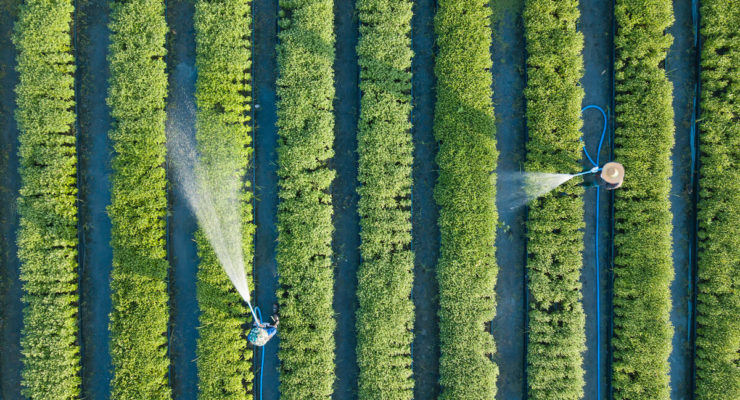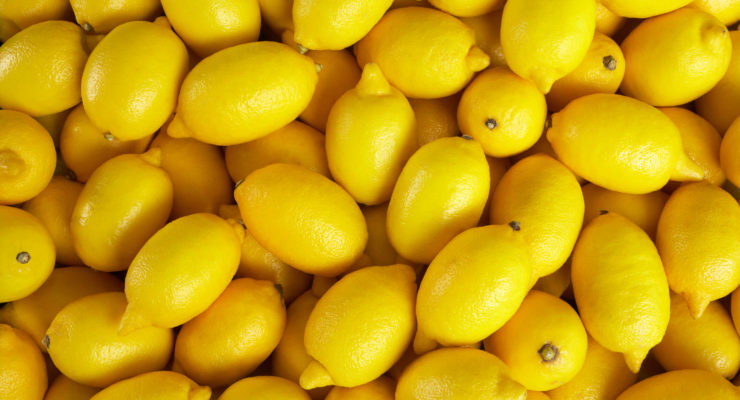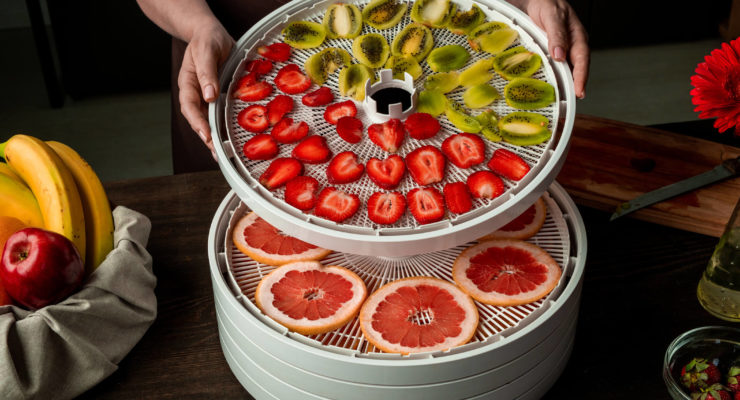(Ocean Robbins) In his really long poem, The Rime of the Ancient Mariner, Samuel Taylor Coleridge tells the story of a crusty old sailor who forces a wedding guest to listen to his awful tale of being stuck at sea, while running out of drinking water. It’s at this point that Coleridge pens two of the most famous lines in all of English literature:
food revolution
Taking Control of Your Health: A Guide to Ordering and Interpreting Your Own Lab Tests
(Ocean Robbins) You get what you pay for, right? I mean, you’d figure a $94,000 Tesla Model S would be more fun to drive than a $14,000 Nissan Versa. You’d hope that a $25,000 Red Ranger Cinema video camera gets superior footage compared to a $25 Vivitar digital video recorder. And if you lived in a country that spent 3x more than most other countries on health care, you’d expect to see higher quality care and better health outcomes.
Irritable Bowel Syndrome: What Causes IBS, & How to Deal with It
(Ocean Robbins) Imagine that one day you notice that your car is acting funny. It’s sluggish, the steering wheel keeps tilting left, and the horn no longer works. You take it to the mechanic, who tells you that nothing’s wrong. The engine and transmission are in perfect working order; the suspension springs are brand new; and the horn, fuses, and wiring are all fine. But, you say, the car isn’t working right. Surely there must be something structurally, mechanically, or electrically at fault.
Systemic Inflammation & the Need for Deep Medicine: An Interview with Raj Patel, PhD and Rupa Marya, MD
(Ocean Robbins) Food Revolution Network CEO, Ocean Robbins, sits down with Drs. Rupa Marya and Raj Patel, authors of Inflamed: Deep Medicine and the Anatomy of Injustice, and co-founders of Deep Medicine Circle, for a heartening look at how deep medicine can help to heal our lives, society, and world.
Food and Water: What You Eat Matters for People & the Planet
(Ocean Robbins) Take the 101 South out of San Francisco through Silicon Valley, past the campuses of Apple, Google, and Facebook. You’ll drive past Whole Foods Markets, Trader Joe’s, Costcos, Walmarts, medical centers, golf courses, fruit stands, and farmers markets. Continue south, hang a left at Gilroy, and hit CA-152 West. As you pass the San Luis Reservoir and Recreation Area, you’ll see signs warning prospective swimmers and boaters to avoid the water due to toxic algal blooms.
Collards: Benefits, Concerns, & Uses of These Highly Nutritious Greens
(Ocean Robbins) In August 1960, five British teenagers calling themselves the “Silver Beatles” landed themselves a gig in Germany. The youngest, George Harrison, had to lie about his age to receive a work visa. They were to play six days a week in Hamburg’s Indra club, typically finishing their seven-hour sets around three in the morning, for which they received about $50 a week. They were given free lodging backstage in a nearby movie theater, next to the toilets. Their first night, they played when the main act, a stripper, took her breaks.
Plant-Based Preparedness: The Healthy Way to Prepare for Emergencies
(Ocean Robbins) On November 14, 1943, the 25-year-old assistant conductor for the New York Philharmonic Orchestra was relaxing as the orchestra finished preparations for a nationally broadcast concert at Carnegie Hall. His reverie was interrupted by an urgent message: The guest conductor, Bruno Walter, had just come down with a bad case of the flu and the regular conductor, Artur Rodziński, was unavailable. The assistant would have to conduct the concert with zero rehearsal time.
How to Build Collagen Naturally
(Ocean Robbins) The population density of Manhattan is about 70,000 people per square mile, so it’s a good thing that all those people don’t rely on cars to get around. Instead, most use the New York City subway system, which served almost six million riders a day in 2016. The system, which first opened in 1904, is the primary infrastructure that binds the millions of New Yorkers to their sites of work, worship, and leisure.
What to Eat (and Drink) for Better Sleep
(Ocean Robbins) Thomas Edison hated sleep. Sleeping, he argued, was unproductive, while working was productive. He grudgingly gave himself four hours a night, and insisted that his employees do the same, arguing that it was only those willing to stay awake all hours who would come out on top in a technologically advancing world.
The Benefits of Eating Brussels Sprouts (and How to Make Them Taste Good)
(Ocean Robbins) In 1946, Liberty Films released (to much fanfare) a movie that cost over $2 million to make, and it went nowhere. It was so unpopular that it not only failed to turn a profit, it actually bankrupted the studio and ended the director’s career. In other words, yuck! Probably good riddance, and there’s no reason you should ever give this ill-fated film a second look if it somehow shows up on your TV or streaming service this holiday season.
How (and Why) to Use Lemon in Recipes
(Ocean Robbins) If your vehicle is a lemon, that means it rolled off the assembly line with big problems. “When life gives you lemons” is shorthand for “when things go badly.” In Shakespeare’s Love’s Labour’s Lost, a character suggests that the god Mars’ gift to an unworthy Hector was a lemon. In short, for such a versatile, delicious, and healthy fruit, lemons have gotten pretty rotten press. In this article, I want to redeem the sour little fruit by exploring the many reasons (and ways) to add more lemons to your cooking.
What Is TMAO? And Why Should You Avoid It?
(Ocean Robbins) In 1970, the unheralded Swedish band Festfolket (“Party People” in English) made their television debut on a strange variety show called “Five Minute Saloon.” The quartet — Agnetha Fältskog, Björn Ulvaeus, Benny Andersson, and Anni-Frid Lyngstad — sang a frankly cringe-worthy rendition of “California Here We Come” (you can watch it here) while decked out in ridiculous Western wear. The reviews were largely negative, for this performance and also for their stage show.
Are Starches Good or Bad?
(Ocean Robbins) You know those giant pleated collars that European nobles wore in the 15th and 16th centuries? They’re called “ruffs,” which is kind of fitting since they look a bit like the cones worn by dogs who can’t stop chewing on itchy spots. Some ruffs were so wide that their wearers had to use special extra-long utensils to get food into their mouths.
Guide to Dehydrating Food: Methods, Foods to Try, and Recipes
(Ocean Robbins) In the early 1980s, the California Raisin Advisory Board had a big problem. There were a lot of raisins produced every year, and not much demand. According to the board’s own market research, most consumers considered raisins “dull and boring.” And the usual methods of produce marketing weren’t making a difference: no amount of raisin recipes placed in homemaker magazines, raisin fairs, raisin seminars, or Raisin Queen beauty contests had moved the needle on Americans’ indifference toward the dehydrated grapes.
Are Sea Vegetables Good for You and the Planet? — And Are Some Better Than Others?
(Ocean Robbins) The comedian Steven Wright once said, “I have a large sea shell collection which I keep scattered on beaches all over the world. Maybe you’ve seen it.”














